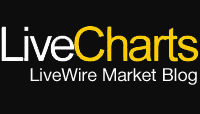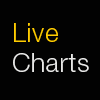Gold Ticks Higher as European Inflation Soars
THE SPOT PRICE of physical gold bullion gave back half of an early 0.8% gain in London on Monday morning nearing the end of the first quarter almost 12% higher against the US Dollar.
Asian stock markets closed out their worst three-monthly performance since the Dot-Com Crash accelerated in 2001, while European stocks sank 1.5% at today’s opening before crawling back to break-even by lunchtime.
British investors wanting to Buy Gold today saw it break £472.50 per ounce, while the Gold Price in Euros touched €592.
“It is the last day of the quarter,” notes Mitsui, the precious metals dealer, this morning, “and with all four precious metals [gold, silver, platinum and palladium] consolidating after the recent correction in prices, it may be a quiet day.
“The technical outlook for gold is fairly neutral in the short term with support at $928 and resistance coming in at $940.”
Crude oil meantime slipped to $104.34 per barrel in early trade – down 1.2% for the session but 7% above New Year’s Eve – after the leader of Iraq’s militant Mah’di army called for a truce with government forces.
Base metals also sold off – and bond prices ticked lower – as professional investors worldwide awaited details of the “Paulson Plan” for regulating the US financial markets.
The 200-page document is expected to grant the Federal Reserve formal powers to bail-out failed institutions such as Bear Stearns in a new role as “market stability regulator”.
Back in the Gold Market, “we have very strong supply and demand fundamentals,” reckons Evy Hambro, head of BlackRock Merrill Lynch Investment Managers.
“It takes two, three or four years to build a mine, so you can’t just turn a tap and produce more commodities. I would say that Gold Prices are going to continue in a positive direction.”
Bouncing from Friday’s three-day lows against the US Dollar and British Pound, today’s Morning Gold Fix here in London held steady against the European single currency, even as the Euro rose sharply on the forex market.
Sterling dropped to a new 11-and-a-half-year low beneath €1.25 per Pound, down by 17% since the global banking crisis began in August.
Versus the Japanese Yen, the US Dollar slid back towards Â¥99.30, helping depress Tokyo-listed export stocks as Japan’s fiscal year came to an end today.
Hong Kong-listed stocks ended the first three months of 2008 more than 18% lower. The index of mainland Chinese “H share” equities closed 25% below its level of New Year’s Eve.
Globally, investors have pulled some $98 billion out of equity funds so far this year, according to analysts at Emerging Portfolio Fund Research.
Their number-crunching pointed to positive inflows of $19bn during the first quarter of 2007. The first three months of 2006 saw equity-fund allocations rise by $49bn worldwide.
Commodity funds saw net inflows of $3 billion between Jan. and March this year, says EPFR – a three-fold increase on the first quarter of 2007.
A recent study by Russell Investments says only 6% of North American pension funds are actively investing in commodities. One-fifth of respondents said they are looking to trade commodities directly – rather than “passively” through commodity-based funds.
The biggest US investment fund – the California Public Employees’ Retirement System (Calpers) – last month allocated 3% of its $240 billion portfolio to commodities.
“Why would we overlook any potential strategy that would give us good returns?” asks Clark McKinley, a spokesman for the fund.
Wheat prices slipped 1.5% in the first-half of London trade, but soybeans remained on track for their sixth quarterly increase in succession on rumors that China may increase its soybean imports after storms damaged its domestic rapeseed crop.
Surging commodity prices helped push inflation in the 15-nation European monetary zone in Feb. to a new post-union record of 3.5% year-on-year.
Money supply growth in the Eurozone meantime continued above 11.3% per year, holding near the three-decade records of late 2007.
Economic confidence in the Eurozone slipped in March, however, down for the fourth month running according to the European Commission.
Confidence in the financial services sector plunged to an all-time low.
Adrian Ash
www.BullionVault.com
Formerly City correspondent for The Daily Reckoning in London and head of editorial at the UK’s leading financial advisory for private investors, Adrian Ash is the editor of Gold News and head of research at BullionVault – where you can Buy Gold Today vaulted in Zurich on $3 spreads and 0.8% dealing fees.
(c) BullionVault 2008
Please Note: This article is to inform your thinking, not lead it. Only you can decide the best place for your money, and any decision you make will put your money at risk. Information or data included here may have already been overtaken by events – and must be verified elsewhere – should you choose to act on it.
About Pete Southern
Pete Southern is an active trader, chartist and writer for market blogs. He is currently technical analysis contributor and admin at this here blog.
Most Popular Content
- Gold Flying and Making New All Time Highs
- Gold Prices Slip Ahead of Anticipated Economic Data
- Oil Prices Surge From Lows Amid Mixed Global Signals
- U.S. Stock Indices: A Dance Between Optimism and Fear
- Gold Prices Dance with CPI Data and the Fed
- Oil Prices Surge Amid Record Demand and Supply Tightening
- Gold Steady As US Dollar Index Tries to Make Gains
- Some Respite for Crude Oil within Bear Trend
Currency Articles - May 22, 2019 15:21 - 0 Comments
The Pound is in Freefall – When Will It Stop?
More In Currency Articles
- GBP Gets Ready for an Unpredictable Day with Meaningful Vote 2
- British Pound Stays Strong Whilst The Dollar Remains Weak
Gold and Oil News - Mar 30, 2024 10:37 - 0 Comments
Gold Flying and Making New All Time Highs
More In Gold and Oil News
- Gold Prices Slip Ahead of Anticipated Economic Data
- Oil Prices Surge From Lows Amid Mixed Global Signals



